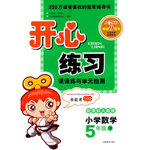题目内容
You’re walking down the street, minding your own business, when you see a snowball. No big deal, right? Except the snowball is as tall as you are. And weighs about a ton. Did we mention that it’s June?
That’s the experience thousands of Londoners had when they crossed paths with “Snowballs in Summer”, the brainchild(创意)of artist Andy Goldsworthy. Goldsworthy makes sculpture(雕刻) from all sorts of things he finds outside—leaves, earth and rocks, as well as ice and snow. He wanted to find out how busy city people would react to an unexpected snowball melting.
During the winter of 2005, he rolled 13 giant snowballs near his home in Scotland. He filled each one with a surprise in the centre—such as pebbles, berries, feathers or sheep’s wool, which would emerge as the snow melted. The finished snowballs were stored in a deep freeze until summer, and then transported to London in refrigerated trucks. At midnight on 21 June 2006, while the city slept, Goldsworthy and his co-conspirators(共谋者)rolled their snowballs into place.
People walking to work or school must have thought the sky was falling when they stumbled across(偶然遇见)snowballs the size of baby elephants. Some of them had never even seen snow in real life, and they couldn’t resist poking (捅)the snowballs or even breaking off a chunk(大块,厚片). As the snow started to melt, things got even more interesting. The perfectly round snowballs took on different shapes as the stuff inside began to poke through. Two days later, most of Goldsworthy’s snowballs were gone, and their fillings scattered. But Londoners were left with a really good story about that odd summer day when the snowballs came.
60. What could be the best title of the passage?
A. Special Works of Art B. Snowballs in Summer
C. No Big Deal D. Streets Covered with Snow
61. What is really special about the snowballs is that they ________.
A. lie in the street B. are in the shape of baby elephants
C. have pebbles, berries, feathers in them D. appear in June
62. What was the purpose of Goldsworthy in making the snowballs?
A. To find out people’s reactions to them.
B. To call up people’s memory of the cold winter.
C. To show off his skills in sculpture.
D. To let people experience the cold winter.
63. Why did Goldsworthy and his co-conspirators roll their snowballs into place at midnight?
A. They didn’t want to disturb other people. B. It was quiet at that time.
C. They wanted to avoid the traffic jam. D. They wanted to give people a surprise.
BDAD

 开心练习课课练与单元检测系列答案
开心练习课课练与单元检测系列答案 45 out of her mom’s arm.
45 out of her mom’s arm. od can get us through this, he can get us through anything!’”
od can get us through this, he can get us through anything!’”  imagine D. jump
imagine D. jump s
s l-Mart is set to announce a major initiative aimed at helping cotton farmers go organic: it will buy transitional cotton at higher prices, thus helping to expand the supply of a key sustainable material.“Mainstream is about to occur,” says Hahn.
l-Mart is set to announce a major initiative aimed at helping cotton farmers go organic: it will buy transitional cotton at higher prices, thus helping to expand the supply of a key sustainable material.“Mainstream is about to occur,” says Hahn.